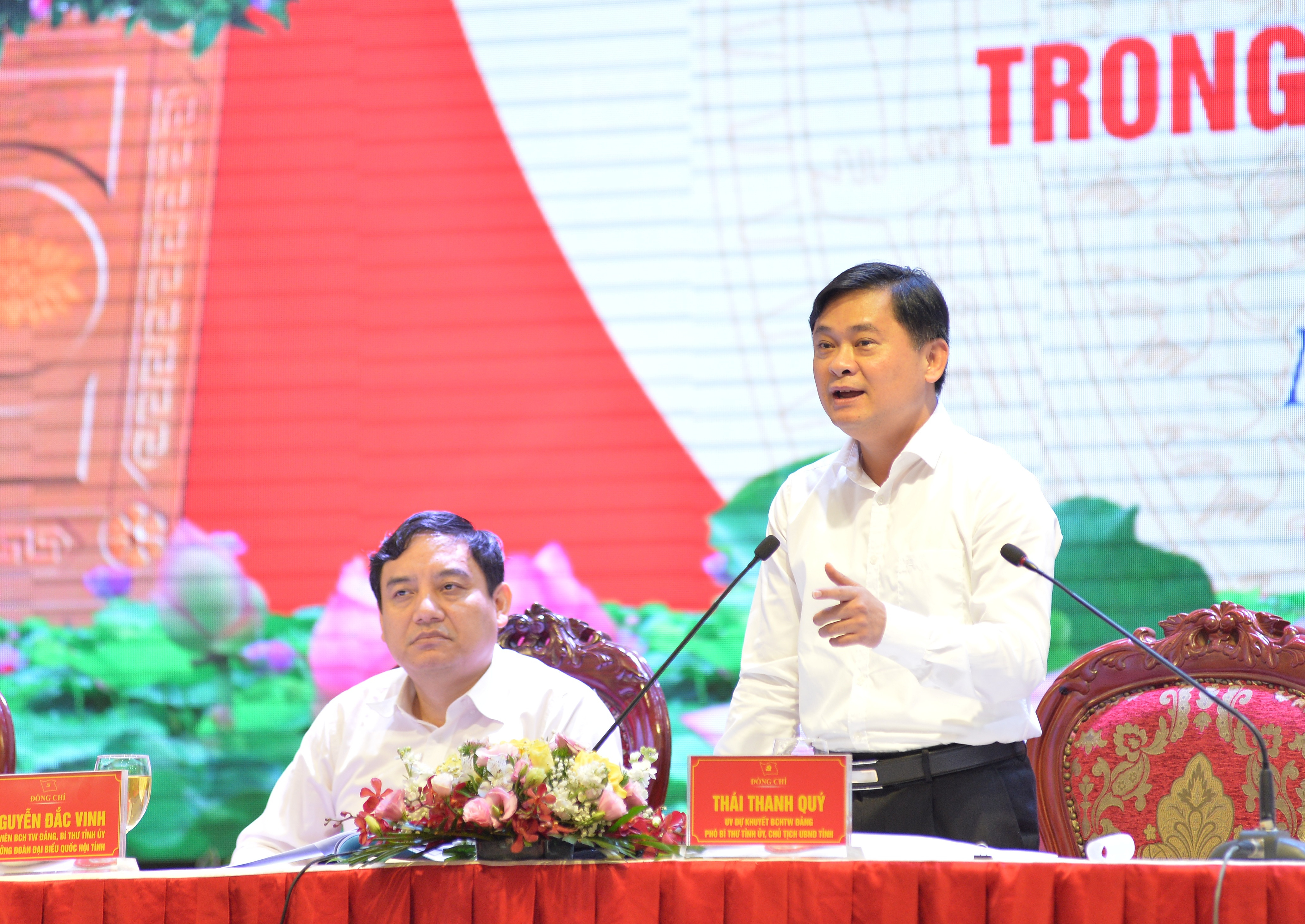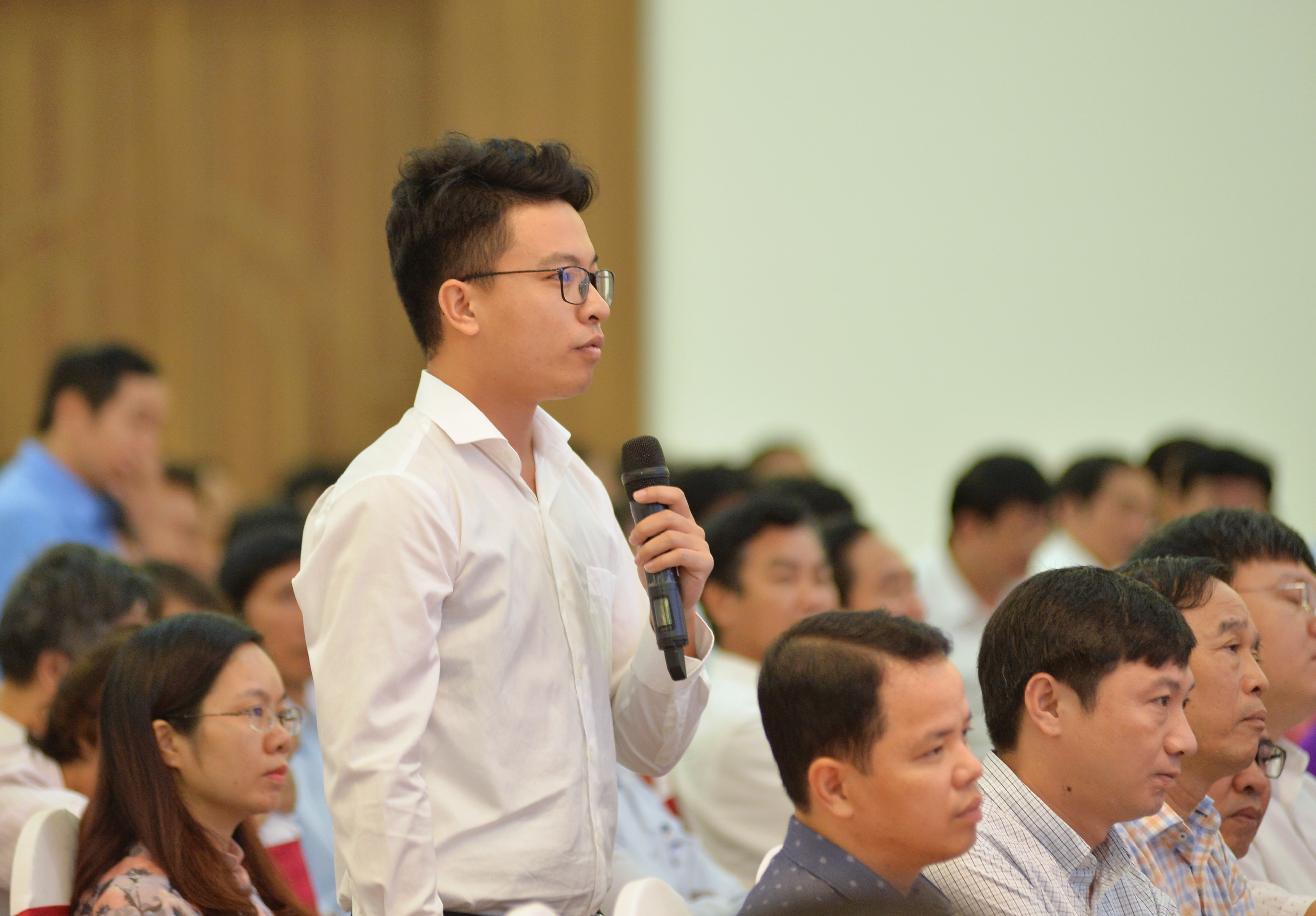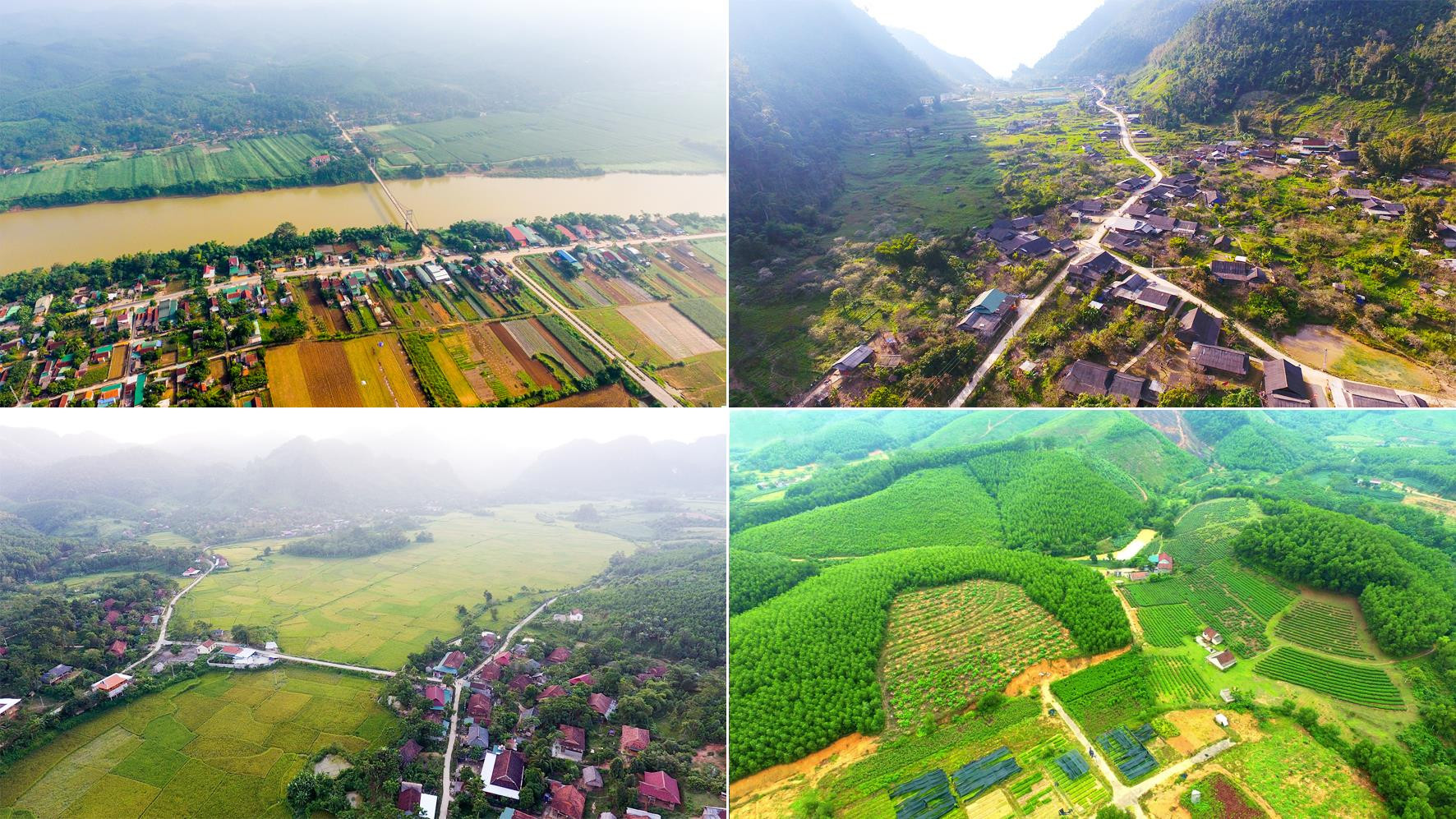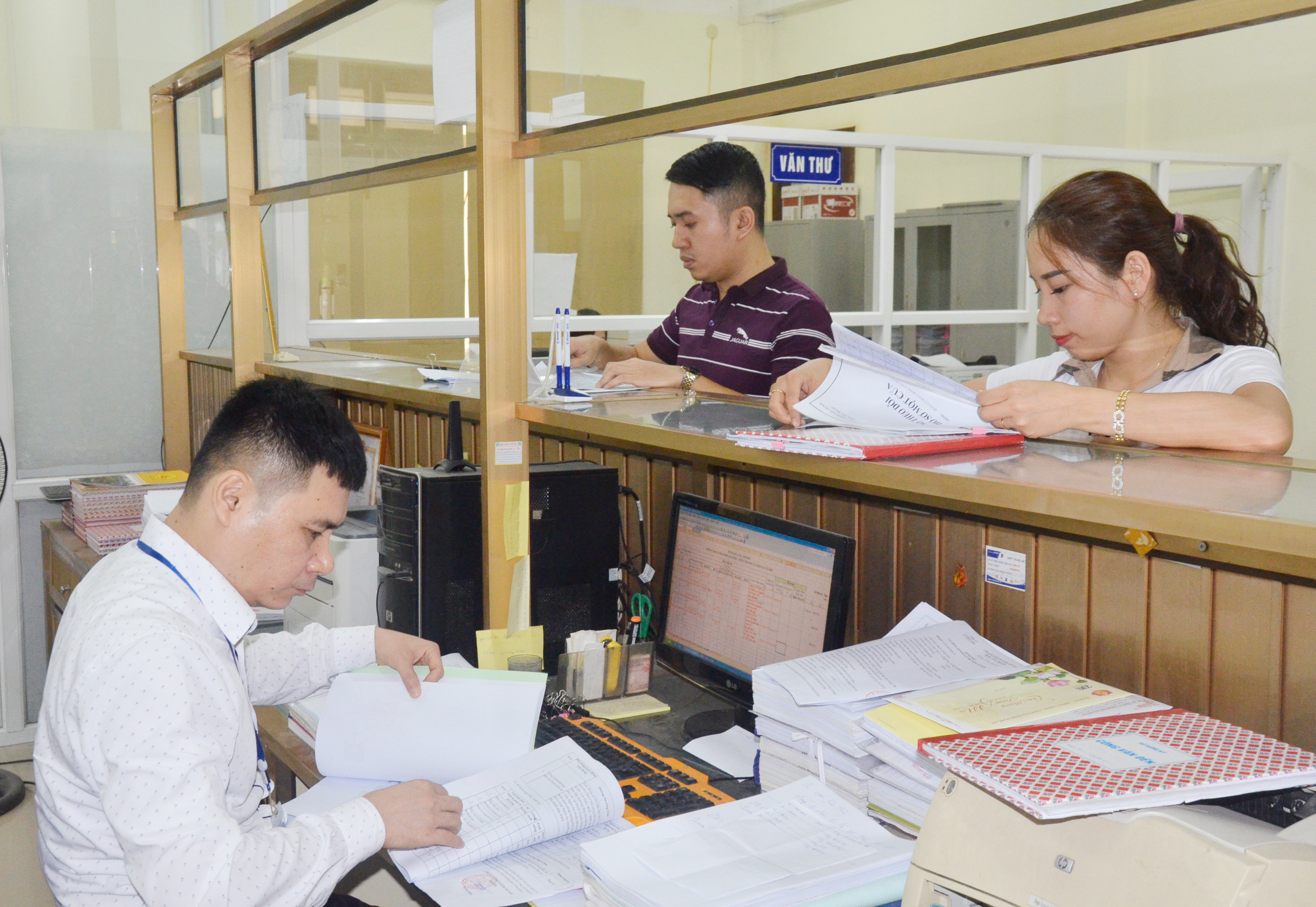Chairman of the Provincial People's Committee Thai Thanh Quy: 'The team of department heads and deputy heads must set an example for their colleagues'
(Baonghean.vn) - According to Chairman of the Provincial People's Committee Thai Thanh Quy, administrative reform work is related to all activities of the political system. The decisive factor for the success of this work is the proactive and self-aware awareness of each of our cadres, civil servants and public employees. In particular, the team of department heads and deputy heads must set an example for their colleagues.
Discussing at the meeting between the Standing Committee of the Provincial Party Committee and leaders of departments and equivalent units in the provincial-level agencies, the delegates from the department-level leaders raised many questions and proposals related to the results of the implementation of the province's socio-economic development tasks.
Concerns about developing the West
Regarding the field of socio-economic development, Mr. Nguyen Tan Anh - Deputy Head of the Investment Promotion Department, Provincial Investment Promotion and Support Center raised the question: How does the province identify the immediate and long-term challenges and risks for the key economic region of Western Nghe An? What solutions does the province have to ensure the goal of shifting the economic structure and proportion of the Western region towards developing the economy of perennial forests, medicinal herbs, and regional specialties?
 |
| Chairman of the Provincial People's Committee Thai Thanh Quy answers questions related to socio-economic development. Photo: Thanh Cuong |
Responding to this content, Chairman of the Provincial People's Committee Thai Thanh Quy affirmed: In the socio-economic development strategy of Nghe An province, the West is identified as one of the three key economic regions of the province, linked with many other important regions such as the coastal plain and urban areas. This is a region with many comparative advantages in economic development in terms of forest economy, mineral exploitation and tourism.
The province identifies building a strong and comprehensive Western Nghe An as an extremely important task for the cause of socio-economic development, ensuring long-term national defense and security of Nghe An province, the North Central region and the whole country.
Besides the achieved results, the socio-economic situation of the Western region still faces many immediate and long-term challenges and risks.
That is, the implementation of important economic development goals and targets has achieved low results; per capita income is still low compared to the average of the whole province; the poverty rate is still high and the poverty reduction results are not really sustainable; the income gap between the people in the Western region and the delta region is at risk of increasing.
 |
| Mr. Nguyen Tan Anh - Deputy Head of Investment Promotion Department, Provincial Investment Promotion and Support Center asked questions to the Standing Committee of the Provincial Party Committee. Photo: Thanh Cuong |
After more than 5 years of implementing Decision 2355 dated December 4, 2013 of the Prime Minister, up to now, Western Nghe An has had a new appearance, role and position.
Economic scale and potential have developed quite well; Average growth rate in the period 2013-2018 reached 8.4%, higher than the average of the whole province. Economic structure shifted in the right direction.
People's living standards have improved, with average income per capita in 2018 reaching 29.09 million VND. Budget revenue in the area is quite good, with the average budget revenue growth rate in the 2013-2018 period reaching 20.49%.
The exploitation of land and mineral resources potential and advantages is not very effective; environmental problems due to the negative impacts of climate change lead to flash floods, inundation, landslides affecting people's lives and property and infrastructure in the province; the security and order situation is complicated; the operational capacity of the political system in some places is still limited,...
To ensure the goal of shifting the agricultural and forestry economic structure towards increasing the proportion of forest economy, medicinal plants, and specialty plants in the Western region of Nghe An province, the province focuses on comprehensive and breakthrough solutions to develop the socio-economic development of the Western region of the province.
 |
| The economic growth rate in the period 2014-2018 of Western Nghe An reached an average of 8.4%. |
Initiatives and suggestions for administrative reform
One of the issues that the department leaders are interested in is the administrative reform (AR) of the province. “In the coming time, what plans and solutions does our province have to increase the PCI, PAPI, PARINDEX indexes? Does the province have any regulations and policies to support cadres, civil servants, and public employees in giving advice and joining hands to promote administrative reform, contributing to improving the above indexes?” - Ms. Tran Thi My Ha, Head of the Trade Management Department of the Department of Industry and Trade asked.
 |
| Ms. Tran Thi My Ha, Head of Trade Management Department - Department of Industry and Trade raised questions about the province's administrative reform work. Photo: Thanh Cuong |
Clarifying this content, Chairman of the Provincial People's Committee Thai Thanh Quy affirmed that in recent years, the province's administrative reform work has achieved very remarkable results.
Specifically, the Provincial Competitiveness Index (PCI) in 2018 ranked 19th out of 63 provinces and cities nationwide, up 2 places compared to 2017. The Provincial Governance and Public Administration Performance Index (PAPI) in 2018 ranked 4th nationwide with 46.57 points out of 80 points (up 40 places). The province's Public Administration Reform Index (PARINDEX) in 2018 ranked 29th out of 63 provinces and cities nationwide (up 2 places compared to 2017).
Chairman of the Provincial People's Committee Thai Thanh Quy said that the province has proposed specific plans and solutions for each index. Accordingly, the province will develop and evaluate the sector/district competitiveness index (DDCI), aiming to create a real competitive driving force between sectors and localities in administrative reform, especially competition between localities to attract investment.
Regarding the PAPI and PARINDEX indexes, the province is assigning the Department of Home Affairs to take the lead in developing a Project to improve the PARINDEX index and the province's PAPI index.
 |
| Handling administrative procedures at the One-Stop Department of the Department of Construction. Photo: Thanh Le |
Regarding the general plan and solutions to improve administrative reform indicators, the province is building and will put the Public Administration Service Center into operation in late December 2019 or early January 2020.
The Provincial Public Administration Service Center, with the coordination of competent agencies and units, will shorten the time and save costs for individuals and organizations in the process of resolving administrative procedures; creating conditions for individuals and organizations to only go to one place to resolve administrative procedures.
At the same time, create a unified, convenient, civilized, modern working environment; integrate human resources, facilities, technical equipment; directly, quickly, and promptly receive instructions from the leaders of the Provincial People's Committee.
At the same time, the province directed agencies and units to continue reviewing, cutting down, and simplifying cumbersome and complicated administrative procedures, especially those directly related to people and businesses.
Improve the spirit, responsibility and ethics of public servants, especially those who regularly interact and exchange work with the people; continue to promote the application of information technology in public service activities; strengthen the inspection and evaluation of the implementation of administrative reform at all levels.
The Chairman of the Provincial People's Committee said that there is still much work to be done in the province's administrative reform work. The contents of administrative reform work are related to all activities of the political system. The decisive factor for the success of this work is the proactive and self-aware awareness of each of our cadres, civil servants and public employees.
“In particular, team leaders and department heads must set an example for their colleagues. In that spirit, I hope that each of our cadres, civil servants and public employees, regardless of their position, must be united, exemplary, dynamic, creative, wholeheartedly and wholeheartedly serving the people. In particular, I hope to receive many effective suggestions and initiatives to help the province in administrative reform from the leaders of department heads and deputy heads,” the Chairman of the Provincial People's Committee emphasized.
